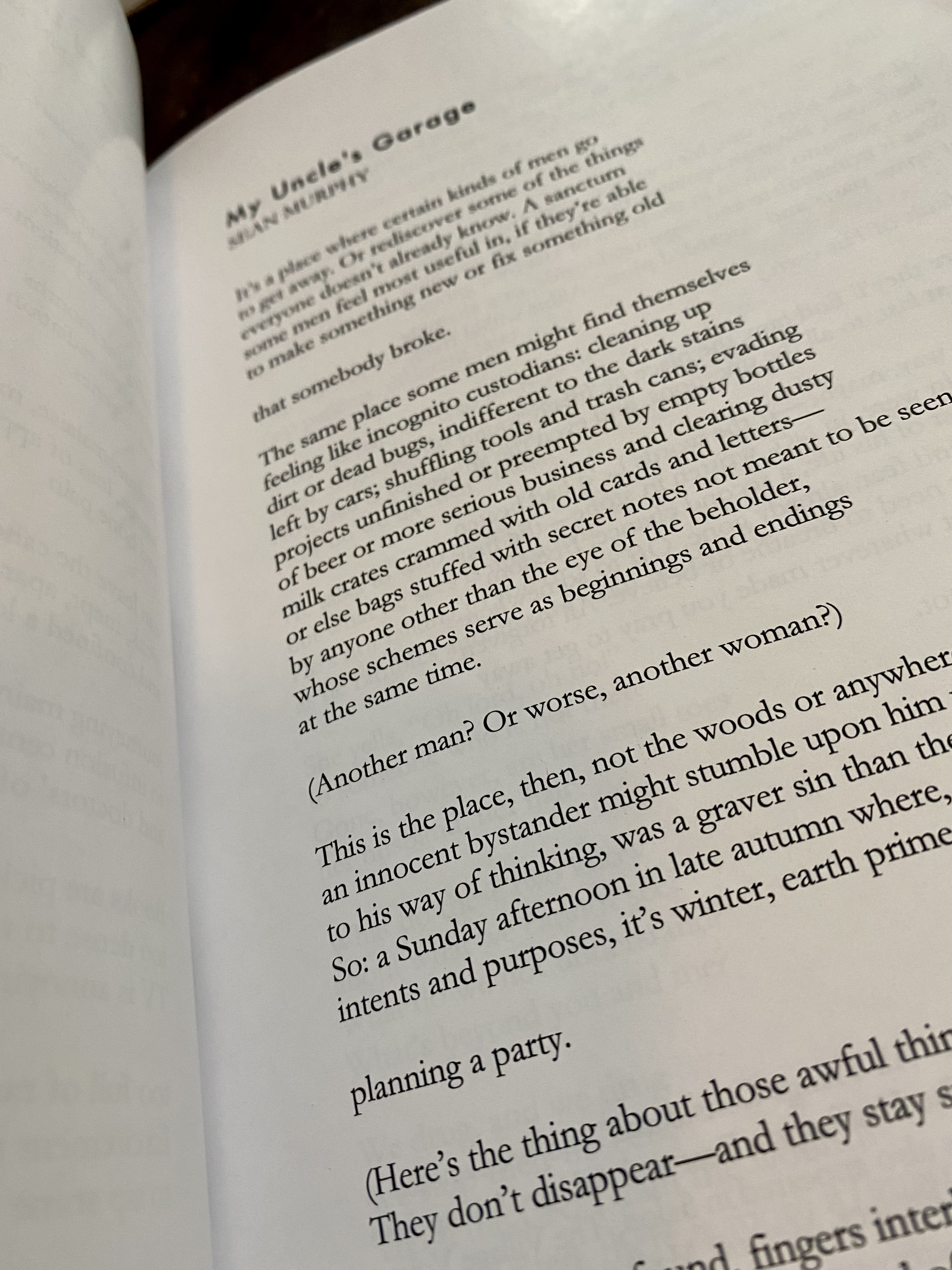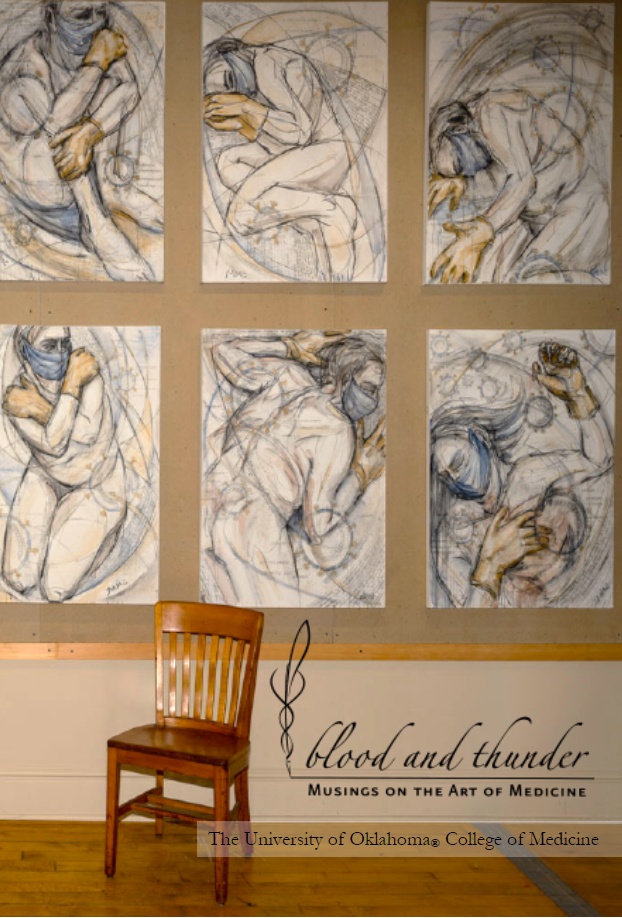It’s a tremendous honor to have my work included in the current issue of The University of Oklahoma College of Medicine’s journal Blood and Thunder: Musings on the Art of Medicine. It’s a gorgeous production, and I encourage anyone to check it out online, or support their work and purchase a physical copy. In addition to poetry, there is prose and visual art, it’s a lovingly and painstakingly produced project.
This poem, “My Uncle’s Garage,” is at once autobiographical and a creative point of departure that purposefully addresses a whole host of triggering issues: suicide, violence, abuse, adultery, depression, religion, and a thorny topic that inspires much of my fiction, the inability to communicate openly and honestly (and how many of our problems, societal and self-inflicted, might be ameliorated if we were able or willing to do so).
It’s heavy, disconsolate stuff, but it’s also an attempt to make sense of pains familiar to all of us, and I believe one purpose of art, beyond merely exploring the dark spaces, is to confront them, discuss them, and make small, individual (and hopefully, collective) strides toward transcending them.
This poem, like so much of my work, is dedicated to the memory of my wonderful mother, Linda Murphy.
My Uncle’s Garage
It’s a place where certain kinds of men go
to get away. Or rediscover some of the things
everyone doesn’t already know. A sanctum
some men feel most useful in, if they’re able
to make something new or fix something old
that somebody broke.
The same place some men might find themselves
feeling like incognito custodians: cleaning up
dirt or dead bugs, indifferent to the dark stains
left by cars; shuffling tools and trash cans; evading
projects unfinished or preempted by empty bottles
of beer or more serious business and clearing dusty
milk crates crammed with old cards and letters—
or else bags stuffed with secret notes not meant to be seen
by anyone other than the eye of the beholder,
whose schemes serve as beginnings and endings
at the same time.
(Another man? Or worse, another woman.)
This is the place, then, not the woods or anywhere else
an innocent bystander might stumble upon him which,
to his way of thinking, was a graver sin than the act itself.
So: a Sunday afternoon in late autumn, where for all
intense and purpose, it’s winter, earth primed like a host
planning a party.
(Here’s the thing about those awful things you can never see:
They don’t disappear—and stay suspended, forever in the air.)
It’s here he’ll be found, fingers interlocked, unbreakable.
Like the sometimes-sacred bond of family, or the audacity
of unwelcome memories. Yes, let her find him here, first.
Or his father, whose love was often like a fist: a fighter.
The kind of man certain sons shouldn’t want to become.
A last word, at last, in an unspoken war nobody wins.
This final failure a family affair, an uninterrupted argument
that’s run its course.
(Let him sort it out, his own way, with the only man
he feared, the man upstairs, the Big Daddy watching
each scenario unfold in the mess of His own garage.
Was it immaculate and organized inside, or a shambles
of spare parts and discarded plots? Alibis willed freely,
no fault of His own.)
It’s here they’ll find him, the place he finally found
an end, at last, to all the questions, and even the answers.
Peace this way, maybe—if the words he’d had beaten
into his brain were, in fact, written in stone—the first
day of the rest of his life, a second chance, freedom
from fathers and fear; already gone. Off to somewhere
where we don’t need to breathe or believe. All forgiven,
so you can forget whatever made you pray to get away
to begin with. Or not.


